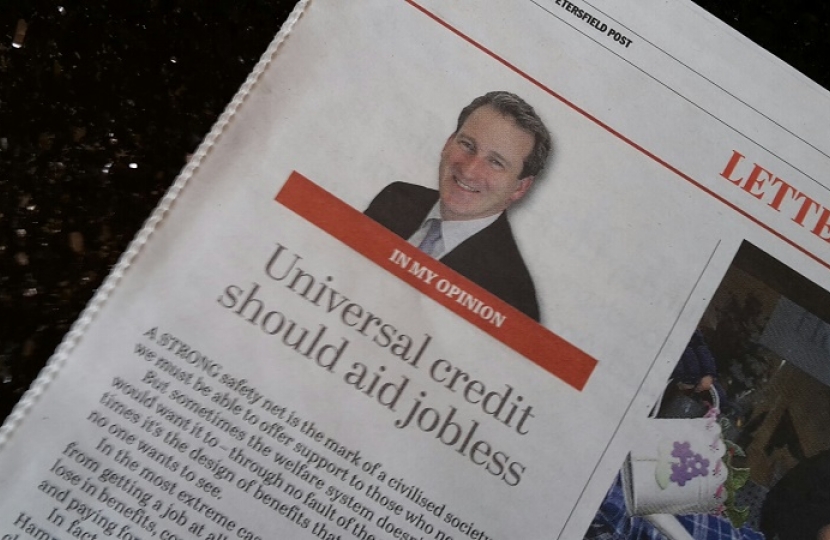
A strong safety net is the mark of a civilised society, and we must be able to offer support to those who need it.
But sometimes the welfare system doesn't work as we would want it to - through no fault of the recipients. Sometimes it's the design of benefits that can lead to outcomes no one wants to see.
In the most extreme cases someone could be deterred from getting a job at all because of how much they would lose in benefits, combined with the costs of getting to work and paying for childcare.
In fact, unemployment has come down a lot: in East Hampshire the number of Jobseeker’s Allowance claimants has more than halved in the last five years.
But even with high levels of employment, people who are in work can sometimes be put off from working more hours because the system gives an incentive for reaching a certain number of hours – 16, 24 or 30 depending on your circumstances – but then lets you keep less of what you earn above those hours.
These are not new issues: they have been around a long time and governments of all colours have grappled with them.
Now there's a new system coming, Universal Credit or UC, designed to address adverse features like these. It’s the biggest structural reform of our social security system in decades.
This month, the Petersfield, Bordon and Alton jobcentre areas opened for the first time to new Universal Credit clients. It is being rolled out gradually and for now it will only be ‘new’ local cases for people with pretty simple circumstances. Eventually everyone on existing benefits like Jobseeker's Allowance will get migrated to the new system.
The core purpose of UC is to “give you the support you need to prepare for work, move into work, or earn more.” In return it’s the recipient’s responsibility to do everything they can to find work or increase their earnings.
One of the most important changes is to remove those sticking points at 16, 24 and 30 hours, and instead have a smooth ‘withdrawal rate’ so people can easily see that they will always be better off moving into work, and moving up the hours scale. Specialist Work Coaches help with things like CVs and interview tips.
UC combines six benefits into one. It’s paid monthly, like most people’s wages, and that should also help smooth the transition from unemployment to work.
Childcare costs can be a major barrier to work, but with UC more of these costs can be reimbursed, and, unlike in the current system, people will be able to get support even if working a small number of hours, so in time this should reduce the effect of childcare costs as a barrier to returning to work.
Free childcare for working parents of three and four year olds is also being extended to 30 hours a week from 2017, and Hampshire is taking part in trials to make sure the reforms meet the specific needs of children with special needs and those in rural locations.
I welcome the arrival of Universal Credit to East Hampshire. With a high number of vacancies around, I hope it will help more and more local people into work, and to fulfil their full potential.
Written by Damian Hinds and published in the Petersfield Post, 24th February 2016

